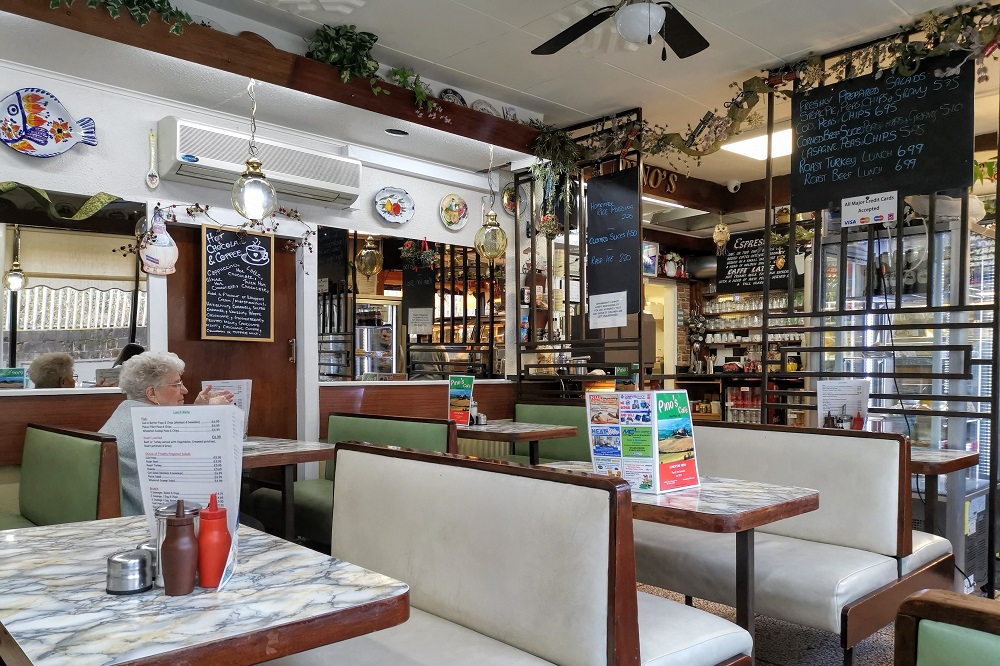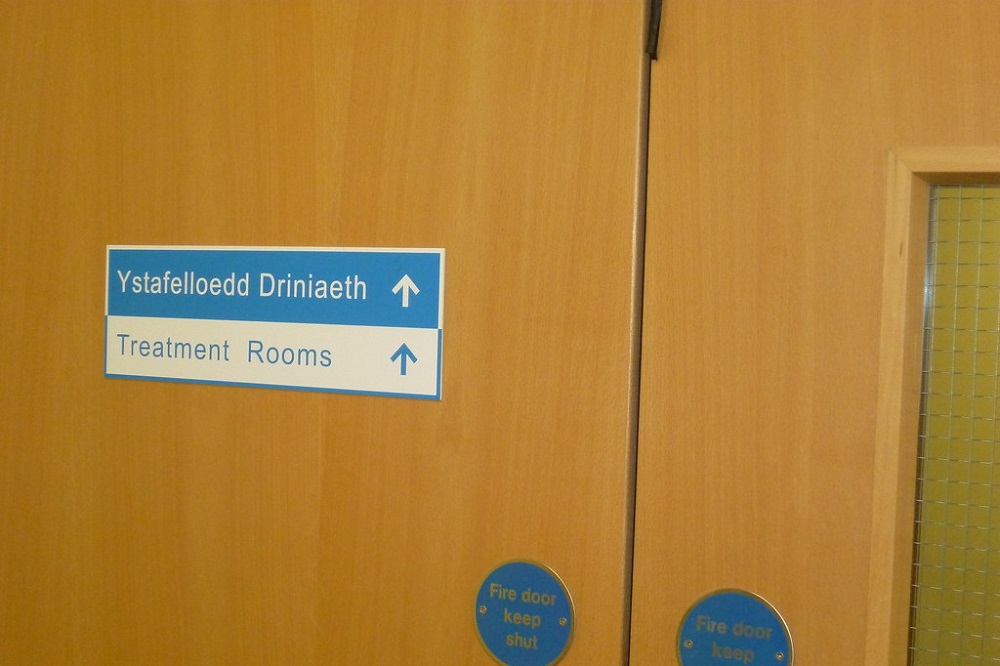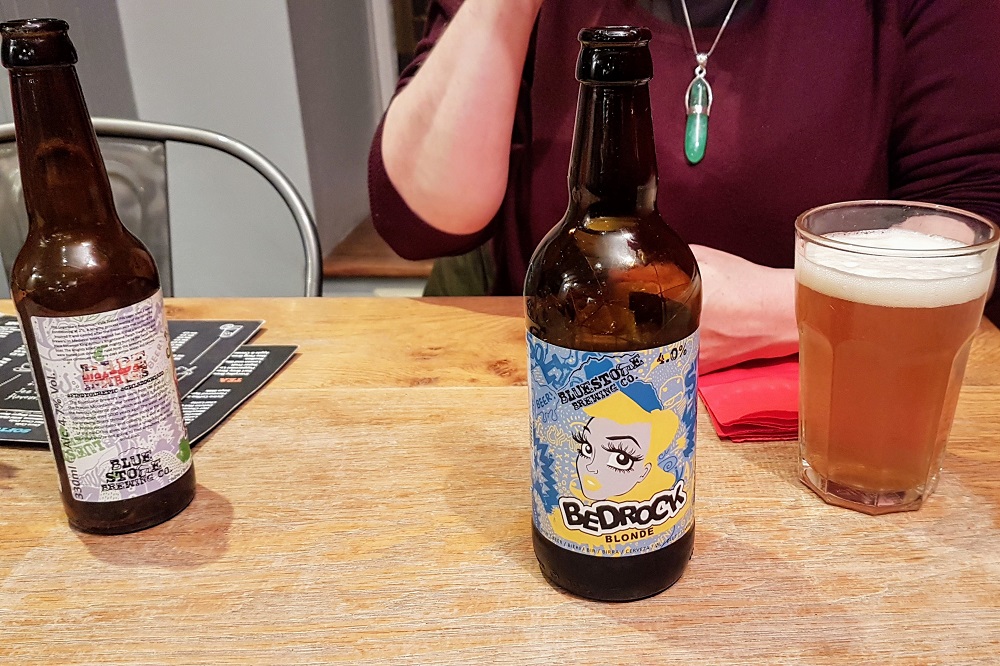News in brief: Hospitality ban sparks political backlash

Mark Drakeford has defended the government’s decision to impose new restrictions on Wales’ hospitality sector and said scientific evidence supports the measures, following criticism from across the political spectrum in Wales.
The First Minister announced earlier today that pubs, bars, restaurants and cafes will not be able to serve alcohol and must close by 6pm from next Friday and indoor attractions including cinemas, bingo halls, bowling alleys, soft play centres, casinos, skating rinks and amusement arcades, museums, galleries and heritage sites, will also have to shut completely.
Mr Drakeford said the measures were being taken because of a “stark” rise in the number of coronavirus cases in Wales and he warned that by January 12 the total number of people with coronavirus in hospital in Wales could rise to 2,200 unless action was taken.
“When people meet together in a hospitality setting, you’re not just having a glancing encounter with somebody as you do if you’re going round a supermarket,” he added.
“You’re sitting together with people for a significant period of time, and the evidence I’m afraid is just there.”
“Whether it’s in our homes or in a hospitality setting, the virus thrives.
“The cases rise and we end up with the position we see in Wales today,” Mr Drakeford added.
Following the announcement at a press conference on Monday, the decision came under fire from several opposition politicians.
Paul Davies MS, Leader of the Welsh Conservatives in the Senedd, described the restrictions as “disproportionate, and unfair”.
“This blanket approach across all of Wales is disproportionate and will unfairly affect parts of the country where infection rates are significantly lower than others, and will harm the sector to such an extent that large parts of it may not recover,” he said.
“This is after they have invested hundreds, and in some cases, thousands of pounds on making their premises as safe as possible.
“With the best will in the world, and especially in the run-up to Christmas, if pubs and cafes cannot sell alcohol with meals, it could encourage people to drink at home and in groups. All the evidence so far has shown that these sorts of interactions are generally more likely to be a cause of transmission.”
Plaid Cymru Shadow Economy Minister Helen Mary Jones MS said the restrictions were “deeply regretful”.
“This is going to be incredibly challenging for the hospitality sector and it is deeply regretful that we’ve found ourselves in this position. Plaid Cymru called for stricter measures as we came out of the Fire Break – including a more gradual easing of restrictions and optimising Wales’s own testing capacity to reach the 24-hour turnaround timescale target.
“The Labour Welsh Government failed to do that and now hospitality is paying the price.”
Neil McEvoy MS, the Leader of the WNP, said: “Other countries are starting to get back to normal and have moved on. These new measures are catastrophic for Welsh businesses.
“Drakeford does not seem to understand that poverty kills. The rest of us are paying the price for his failure.”
A further three people have died with Covid-19 and 802 people have tested positive for the virus, according to the latest figures from Public Health Wales.
All three of the latest deaths were reported in the Hywel Dda health board area.
Cardiff recorded the highest number of new cases (93) followed by Swansea (87) and Rhondda Cynon Taf (72).
Torfaen has the highest infection rate in Wales over the last seven days at 442.7 per 100,000 people and the highest positive test rate at 21.6% per 100,000 tests.
Blaenau Gwent, in second place has a case rate of 428 per 100,000.

New guidelines issued for hospital visitors
The government has issued revised hospital visiting guidelines that give health boards, trusts and hospices more flexibility over visiting arrangements.
Hospital visits have been strictly controlled since the start of the coronavirus pandemic in March.
Under the new recommendations visiting in maternity services will now be based on a risk assessment approach by health boards and all women will be supported to have at least one partner with them during labour, birth and for the period immediately after the birth, except in an “extremely limited” number of circumstances.
The new guidelines also recognise that some people may require essential support e.g. a support worker or interpreter and these will no longer be classed as “visitors”.
This changes have been made due to significant variations in community transmission across different parts of the country.
Minister for Health and Social Services Vaughan Gething, said: “We recognise that the restrictions on visiting has a huge impact on patients, their families and loves ones.
“We have announced further changes to the guidelines today to provide health boards, trusts and hospices with flexibility to depart from the guidelines in response to local levels of COVID-19 transmission.
“It is important to remember that the virus has not gone away and the health, safety and wellbeing of patients, communities and NHS staff remains an absolute priority for both the Welsh Government and health care providers. Tough choices will still need to be made but we hope the revised guidelines will allow more flexibility for health care providers.”

Support package for hospitality and leisure sectors announced
The Welsh Government has published further details of the financial support being offered to businesses affected by the restrictions in the hospitality and leisure sectors announced earlier today by First Minister Mark Drakeford.
From Friday, pubs, bars, restaurants and cafes will have to close by 6pm and will not be allowed to serve alcohol. After 6pm they will only be able to provide takeaway services.
Indoor entertainment and visitor attractions must also close.
The government is making a further £340 million available through the Economic Resilience Fund to support businesses affected by the new changes to the regulations, which will include a specific fund to support hospitality and tourism businesses.
The new support is split into two funds: a £160m Restrictions Business Fund and a £180m sector-specific Economic Resilience Fund grant scheme.
The Restrictions Business Fund will enable eligible businesses in the hospitality, tourism and leisure sectors which pay non-domestic rates (NDR) to access grants of up to £5,000.
It is estimated around 60,000 businesses, with a rateable value of under £150,000 will receive this support.
Businesses not on the NDR system, will be able to continue to apply to local authorities for the Lockdown Discretionary Grant of up to £2,000.
In addition, hospitality, tourism and leisure businesses will be able to access a sector specific Economic Resilience Fund grant scheme.
Small and medium sized businesses meeting the criteria could receive up to £100k. Larger Welsh-based businesses could receive up to a maximum of £150k.
This part of the package is expected to support up to 8,000 businesses in these sectors and a further 2,000 in the related supply chains.
More information about the funding and how it can be accessed will be published on the Business Wales website in the coming days.
Economy Minister Ken Skates said: “These are incredibly difficult days for businesses and these decisions have not been taken lightly.
“We expect today’s £340m announcement to support tens of thousands of businesses and help protect many more jobs and livelihoods. It must also be remembered that UK Government support is also available to businesses.
“We will continue to do everything we can to support our firms and our people through these challenging times.”

Support our Nation today
For the price of a cup of coffee a month you can help us create an independent, not-for-profit, national news service for the people of Wales, by the people of Wales.




